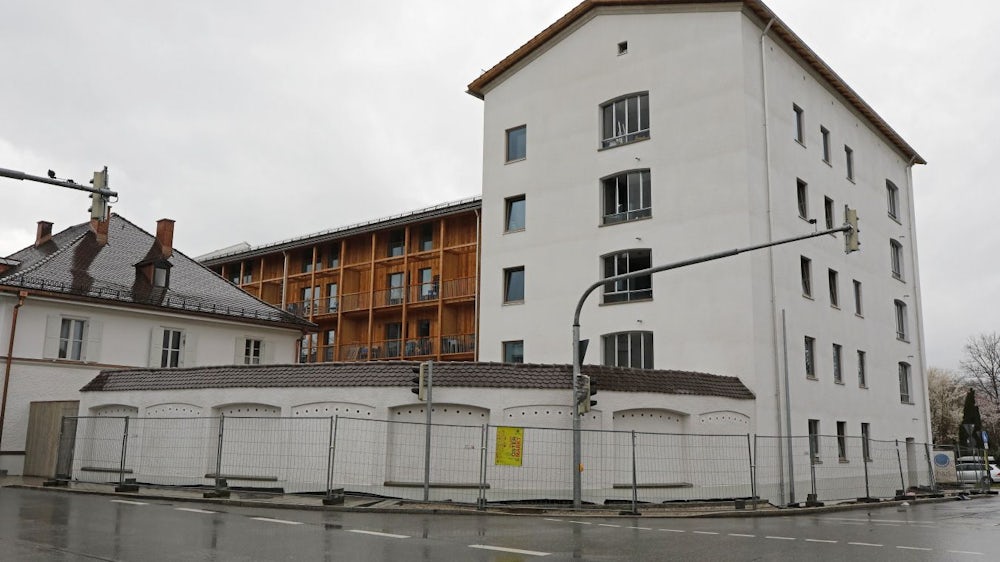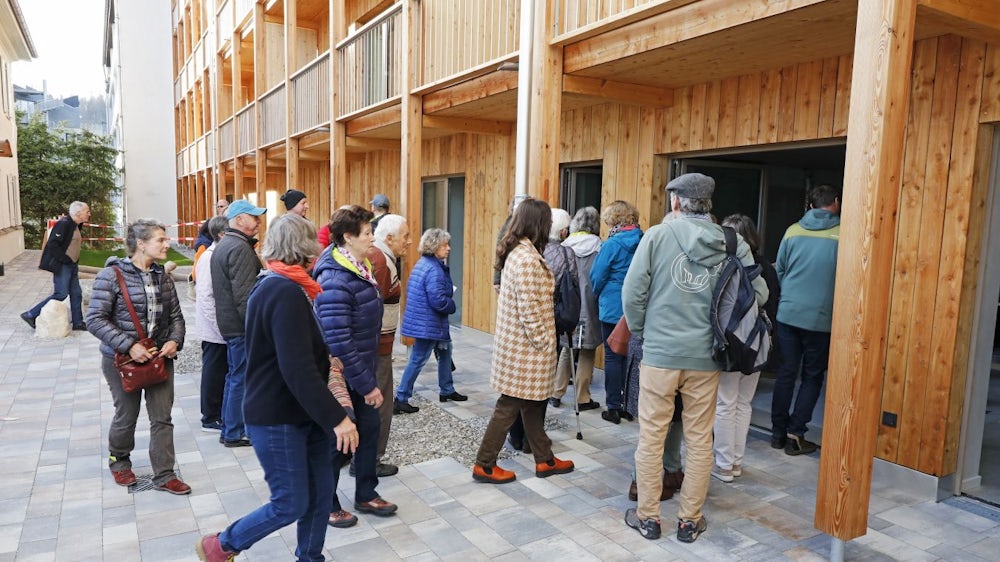Olaf Radziejewski seems to have felt at home in the Maro cooperative’s multi-generational house in Wolfratshausen. The family man speaks of affordable conditions, an intensive sense of community among the residents and a special quality of living that he had never found on the rental market before. That sounds good in the high-price region of the Munich area. But within a few days last March, the dream could have turned into a nightmare. The house community had only just moved in when the Maro cooperative declared itself insolvent. “We were horrified to read what was going on,” says Radziejewski, describing the first reaction of the house community, for which he is one of four spokespeople.
For the around 60 people – including, according to him, more than a dozen children – in the property on the corner of Sauerlacher Strasse and Floßkanal, there is a lot at stake, especially financially. The cooperative company based in Ohlstadt (Garmisch-Partenkirchen district) now states that it has raised around 1.25 million euros in private support commitments to date. In order to be able to continue, Maro needs five million euros as soon as possible, as it is said.
What will become of the compulsory shares?
What will become of the 40,000 to 80,000 euros in compulsory contributions that, according to Radziejewski, residents had to pay depending on the size of the 24 apartments in the building is currently completely unclear. The same applies to the at least three cooperative shares that must be taken over, totaling 1,500 euros. A lot of money for each of the residents, as Radziejewski says.

Anyone wanting to enter the common room of the Wolfratshausen residential complex from the Hammerschmiedweg side currently has to walk over rubber mats. The planned paving is still missing, as is the future planting of trees and bushes in the garden on the south side, which is separated from the street by a wall. At the end of May, this only consists of a gravel area with a little grass. The fact that this has not yet been addressed has to do with Maro’s insolvency, says Radziejewski. However, he reports that there are current discussions about it.
So some things are still a bit provisional in the Maro house in Wolfratshausen – just like the sofa, which was actually intended for the garden, on which Radziejewski sits while he describes the current situation. “We have already filled the common room with a lot of life,” he says. A dance class takes place once a week and a resident teaches using the Feldenkrais method. The household celebrated their first birthdays and grilled together.

Radziejewski and his wife spoke directly about how residents of different age groups and social backgrounds organize their neighborly interactions. He had previously lived in Haar with his wife and daughter, but knew the Oberland very well from many trips to the region. He and his wife became aware of the Wolfratshausen multi-generational house project years ago when they were standing in their car at a red light at the intersection of Sauerlacher Strasse and Floßkanal and saw a Maro advertising poster. “We took a photo of it,” says Radziejewski. At the turn of the year from 2020 to 2021, he speaks of a first sniff of the current house community. A year and a half before moving in, an intensive process began in which the residents got to know each other and, for example, set rules about how they wanted to organize their future life together.
A cargo bike and car-sharing cars are available for loan to the household
According to Radziejewski, this is what sets Maro’s projects apart. As a result, working groups for the workshop, the garden and mobility were formed in Wolfratshausen. “Because not everyone can do everything and that’s the best way we can complement each other,” as the House speaker says. For example, the residents agreed with the city of Wolfratshausen to keep individual automobility as low as possible. For example, fewer parking spaces were created than provided for in the municipality’s statutes. There are therefore two vehicles from Carsharing Pfaffenwinkel in the underground car park, which all residents and members of the mobility service provider can access. According to Radziejewski, there are a total of 24 parking spaces for the 24 apartments plus the two commercial units in the renovated former district hospital, which is also part of the Wolfratshauser Maro ensemble. In-house, residents also have a cargo bike that can be reserved online, and a second is to be added. In the future there will also be a room with a bed for guests in the house.

Radziejewski has been living permanently in one of the two apartments in the renovated district hospital with his wife and daughter for two and a half months. He raves about Wolfratshausen as the municipality with short distances. Whether it was about applying for a child ID card for his daughter at the town hall or re-registering the car or getting something for lunch while he was working from home. He could do that quickly on foot, said Radziejewski.
The phase of the first six months of the 2023/2024 school year, when Radziejewski commuted a lot by car between his previous home in Haar and Loisachstadt, where his daughter was already in first grade at primary school, should now be a thing of the past. The Maro multi-generational project in Wolfratshausen gives him the opportunity to live in a region to which he used to go on excursions.

